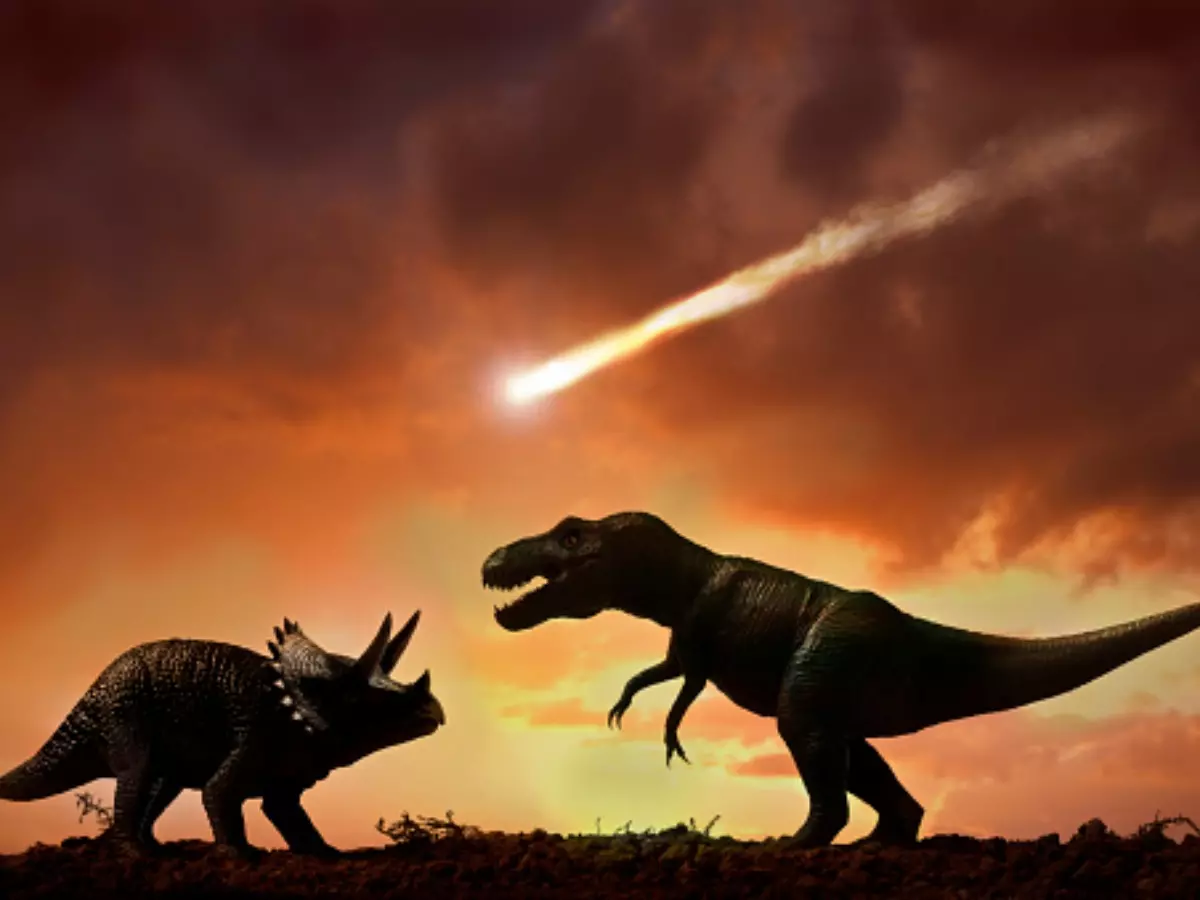Scientists Find Evidence Of Another Asteroid Impact That May Have Killed Dinosaurs
About 66 million years ago, an asteroid slammed into what is now the Gulf of Mexico, wiping off dinosaurs from the face of Earth. Now, scientists think that Earth was hit by another asteroid on the same day

Scientists now think that a second asteroid may have hit Earth when the dinosaurs died out.
About 66 million years ago, an asteroid slammed into what is now the Gulf of Mexico, wiping off dinosaurs from the face of Earth. Now, scientists think that Earth was hit by another asteroid on the same day.
 Unsplash
Unsplash
What does the evidence say?
Scientists have found the "Nadir Crater" about 400 kilometres off the coast of Guinea, west Africa. The crater sits about 300 metres below the seabed and has a diameter of 8.5 kilometres.
It appears that the asteroid that may created the impact was under half a kilometre across. Identified by Dr Uisdean Nicholson from Heriot-Watt University, Edinburgh, UK, the crater was discovered by analysing survey data.
Also read: Dinosaurs Thrived During A Mass Extinction Event In Freezing Temperatures: Study
 Unsplash
Unsplash
Nicholson was looking at seismic survey data to better understand how climate changed on Earth in the past. In conversation with BBC News, Nicholson described these surveys as "an ultrasound of Earth."
The primary asteroid that killed dinosaurs is said to be about 12 kilometres across. With a 200 kilometre wide-depression, this asteroid caused insane tremors, tsunamis, and firestorms around the globe.
Also read: Asteroid That Wiped Out Dinosaurs May Have Given Birth To The Iconic Amazon Rainforest
The new asteroid, scientists think would have generated a kilometre-high tsunami along with an earthquake of magnitude 6.5 or higher.
 iStock
iStock
Even with the similarities of age, the team is still wary of relating both the asteroids. Until samples are taken from the crater to prove that it is actually from an asteroid impact, we wouldn't know the full story.
What do you think about the possibility that Earth was being hit by asteroids in the past very often? Let us know in the comments below. For more in the world of technology and science, keep reading Indiatimes.com.
References
Amos, J. (2022, August 17). Impact crater may be dinosaur killer¡¯s baby cousin. BBC News.
